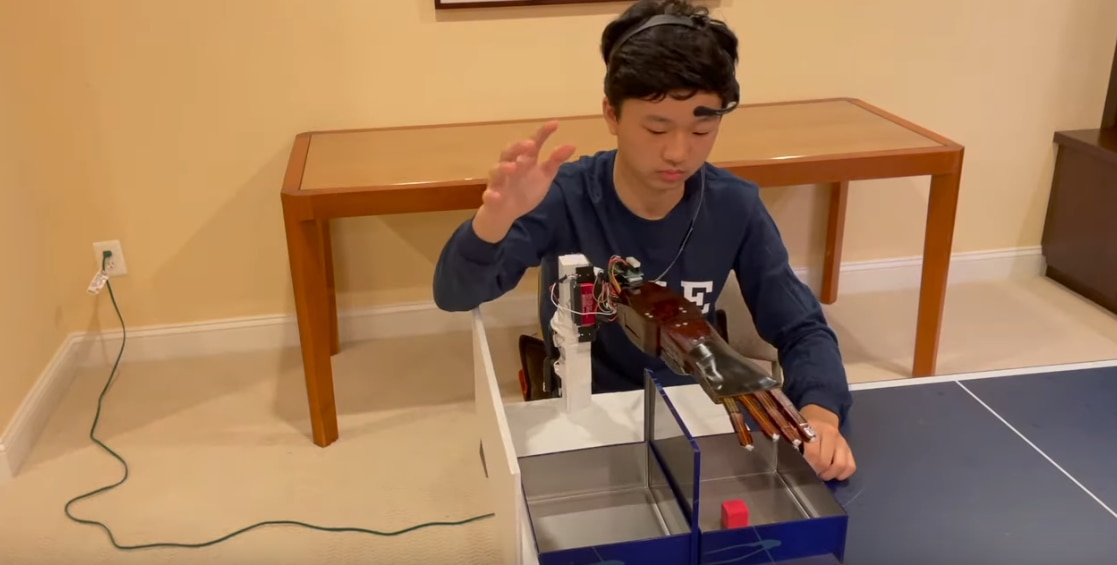
Benjamin Choi develop an affordable prosthetic arm during the pandemic. It relies on two sensors to record brain wave activity. (Image Credit: Benjamin Choi/Youtube)
Un-oh, time to feel like we’ve wasted all that at-home time the past few years.
During the COVID-19 pandemic, Benjamin Choi, a 17-year-old high school student from Virginia, United States, built an affordable AI-powered mind-controlled prosthetic arm. In the summer of 2020, Choi wanted to research aluminum fuels, but the research lab shut down at the time. So he created a makeshift laboratory with a ping-pong table in his basement. Then, the fun began, and he started developing the prosthetic arm with fishing lines and a $75 3D printer. However, Choi had to print the arm in small pieces before assembling them with rubber bands since the 3D printer could only print pieces measuring up to 4.7 inches. He also wrote the code for this device.
Rather than invasive brain surgeries, Choi’s system relies on electroencephalography (EFG), which uses two sensors to measure the brain’s electrical activity. While the baseline sensor attaches to the earlobe, one sensor is placed on the user’s forehead to collect EEG data. This data is then transmitted to the arm via Bluetooth. The AI model, integrated into the arm’s chip, converts it into action.
Choi developed the AI model by working with six volunteers for two hours each. He collected their brain activity data while they clenched and unclenched their hands. The AI model can differentiate between learning from the wearer’s brain waves and the brain waves. Choi entertained the idea of storing the AI model in the cloud due to its potentially large size. Unfortunately, this technique caused response time delays and required constant internet access.

(Image Credit: Benjamin Choi/Youtube)
Choi then compressed the algorithm, containing 978 math pages, 23,000 lines of code, and seven new sub-algorithms, on a chip. After six months of development, Choi posted a YouTube video showing his project. A Pennsylvania upper-limb amputee, Joseph Dunn, saw the video and offered feedback on the arm’s design. Meanwhile, MIT provided funding and technical assistance.
Choi’s prosthetic arm underwent 75 iterations and is composed of high-quality materials that withstand a four-ton load. He also says his AI-powered prosthetic arm has 95% accuracy compared to the 73.8% accuracy of commercial designs. It still only costs $300 to build. Choi hopes to make design improvements and perform clinical trials with non-amputee upper limb patients in the future.
Have a story tip? Message me at: http://twitter.com/Cabe_Atwell
